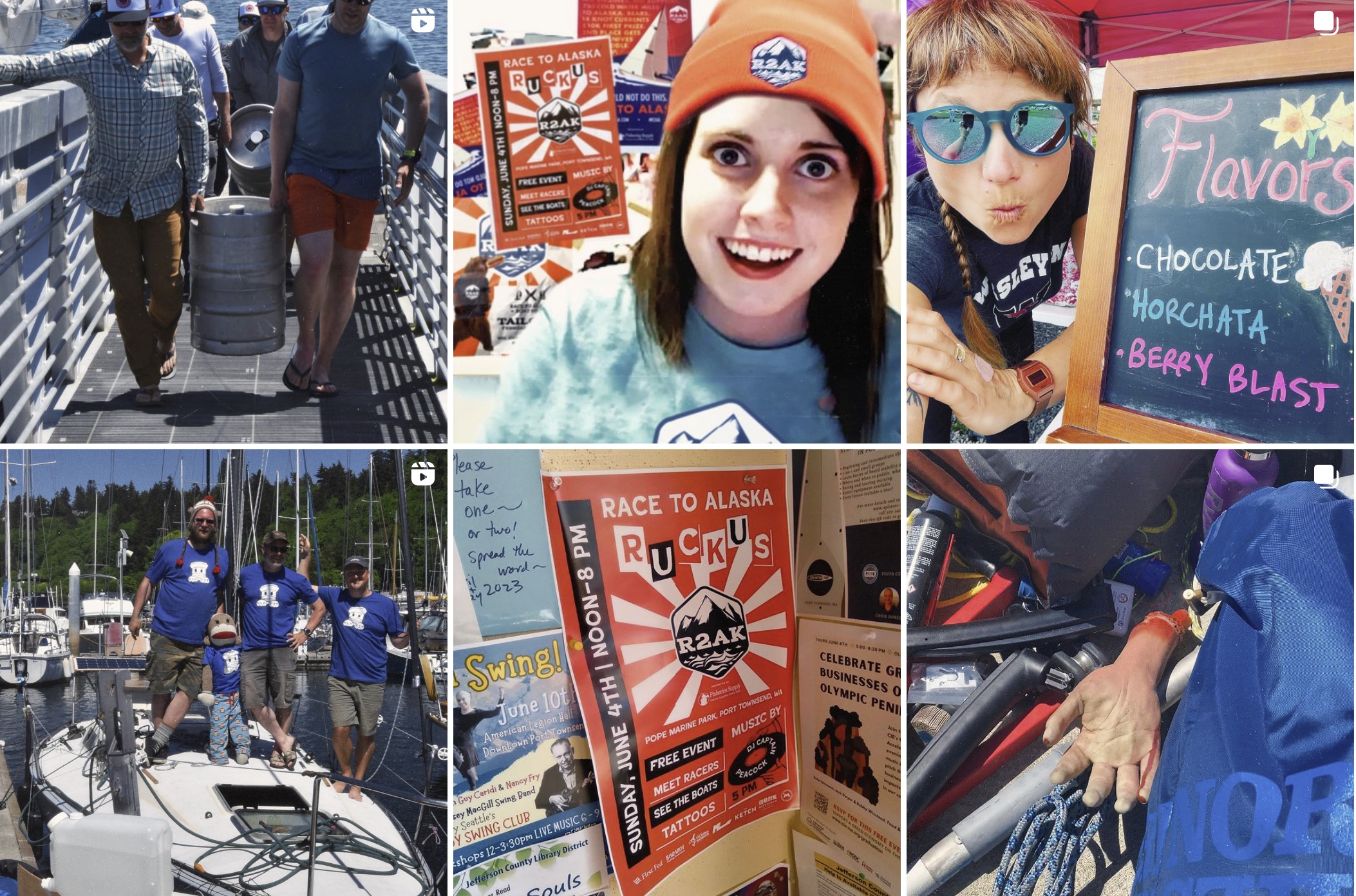This weekend, a hundred or so disgustingly fit sailors and paddlers and rowers will descend on the Port Townsend waterfront for the wildly eccentric Race to Alaska, or R2AK. There will be men and women, teenagers and senior citizens from around the world, crewing high-tech multihull racing machines or homemade rowboats, kayaks or standup paddleboards or even a few ordinary fiberglass sloops.

Famously, however, they will not have engines – none whatsoever. Their 750 mile voyage to Ketchikan, Alaska, will be powered by some combination of wind, muscle and no small amount of human endurance and ingenuity.
Don’t expect a media sensation. Sportswriters and fans will be settled into their recliners for a weekend of Mariners baseball, NBA playoffs, and way too many Budweiser and casino ads.
But this race has become an annual highlight in Port Townsend, where folks will gather on the waterfront Sunday afternoon to ogle the odd fleet and hoist an IPA with the competitors.
And at 5 am Monday morning, they’ll shove off, ride the ebb tide out around the Point Wilson lighthouse, and head for Victoria, BC, then north to Ketchikan.
Meanwhile, another 150 will row or paddle their boats up Puget Sound from Tacoma to Port Townsend in the preliminary event, dubbed the Seventy48 – Seventy miles in 48 hours.
The Race to Alaska emerged nearly a decade ago from the fertile imagination of Northwest Maritime Center director Jake Beattie and a couple of adventure-minded pals, all deeply influenced by their experience with Outward Bound, the international group which leads people on outdoors experiences designed to build character and leadership skills.
The original idea, Beattie recalls, was something of a “publicity stunt,” an oddball effort to draw attention, sponsors and contributors to the fledgling Maritime Center nonprofit on the Port Townsend waterfront.
And it worked beyond their wildest dreams. The media coverage in June 2015 reached as far as Page One of the New York Times, Outside Magazine and more. But much of the attention focused on the R2AK.com website, which kept up-to-the-minute track of the boats, each of which was equipped with a GPS tracking device. By race’s end, the site recorded a remarkable 11 million website clicks from around the world.
Beginning in Year One, the Maritime Center also got hours of video from the race, much of which was compiled into a highly-touted 2022 documentary film, available for streaming on Apple TV.
Two years later, Beattie and company branched out, adding the Seventy48, an all-Puget Sound warmup race from Tacoma to Port Townsend. But this one eliminated the sail power option, making it a strictly human-powered event.
Eight years later, the original novelty and publicity value have faded, Beatty says. It’s become more difficult to attract sponsors and grants, which strains the budget. The mission of the Maritime Center is primarily education, using maritime experiences to help people understand themselves and the world around them. And the future of the R2AK depends in part on how it contributes to that mission.
The race has not lost its appeal to serious sailors and paddlers. At the starting line Monday morning will be 36 teams from as far as England, Australia, New Jersey and eastern Canada. And this year’s Seventy48, which begins Friday evening in Tacoma’s Foss Waterway, has attracted more than 100 competitors.
The publicity stunt is history, Beattie says. But the race has not lost its salient qualities.
“Human existence, especially in this part of the world, has been defined in large part by our relationship to the water,” he says. “And these races are an attempt to rekindle that relationship. It’s damn near spiritual. Facing challenges like this helps create better humans.”
It’s also risky. The 750-mile course is subject to treacherous winds, waves, tides, currents. No lives have been lost in the races, but there have been close calls. Each year, the Canadian Coast Guard delivers a stern, sobering warning to the R2AK competitors: If you get into trouble along the rugged Canadian coastline, don’t expect to be rescued. Sailors are on their own.
The Maritime Center is well aware of the hazards. They carefully vet the prospective competitors and their boats, require basic safety equipment, and track each boat.
“But adventure comes with inherent risk,” Beattie says. “People die in conventional sailing races. We take risk management very seriously, but we know we can’t eliminate it.”
The racers get it. From the outset, the Maritime Center offered a first prize of $10,000, which is supposedly nailed to a spruce tree in Ketchikan. But few, if any of these sailors and paddlers are in it for the cash. In most cases, the prize money would barely cover the cost of the supplies and airfare home, not to mention the boats.
Sailors and paddlers this weekend are drawn to precisely the idiosyncratic values Beattie articulates. They don’t compete with each other, but with their personal fears and frailties. By challenging people to deal with the phenomenal forces of nature in this spectacular corner of the ocean, the R2AK and Seventy48 may be on their way to becoming a quintessential Pacific Northwest experience.
